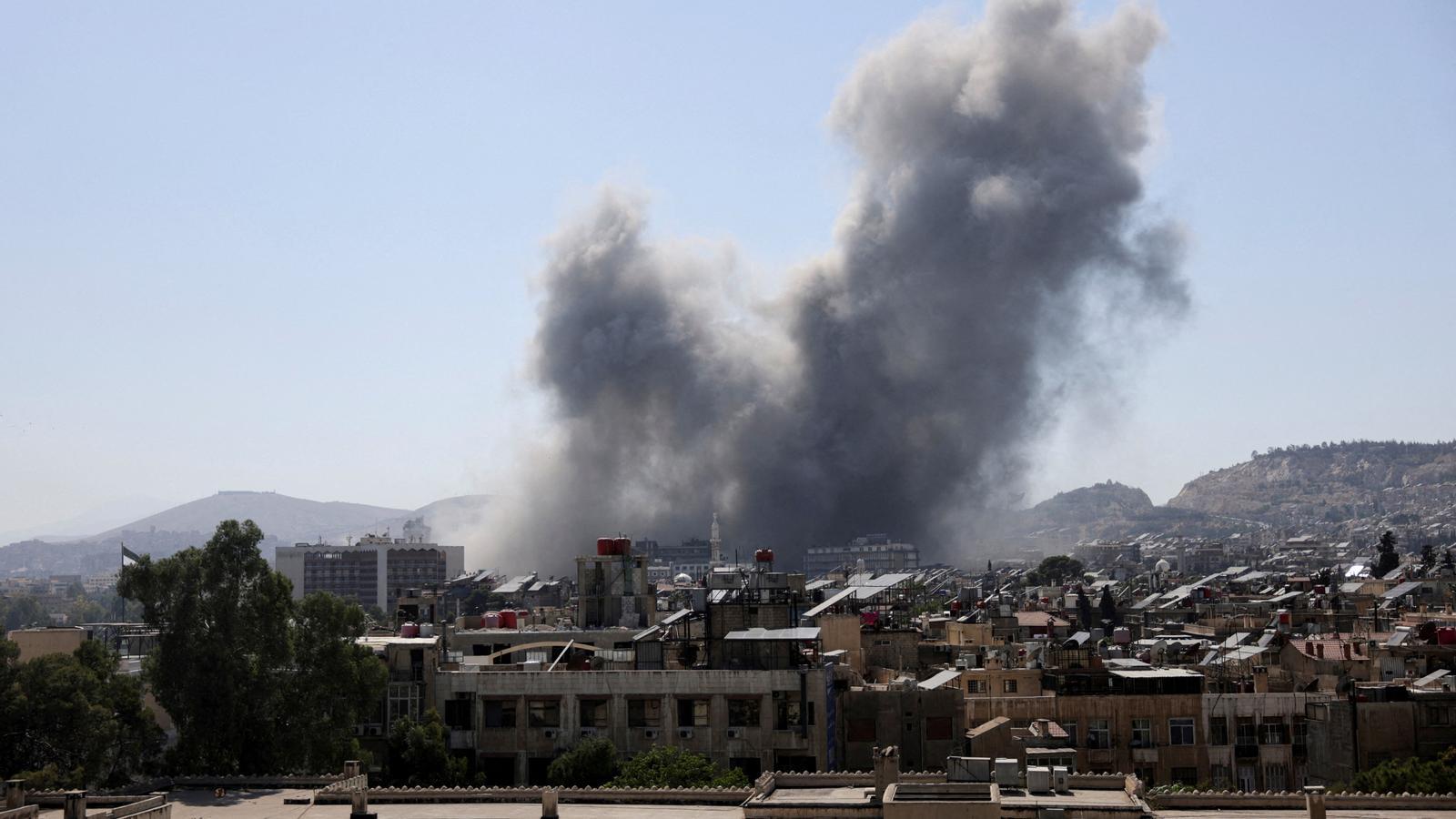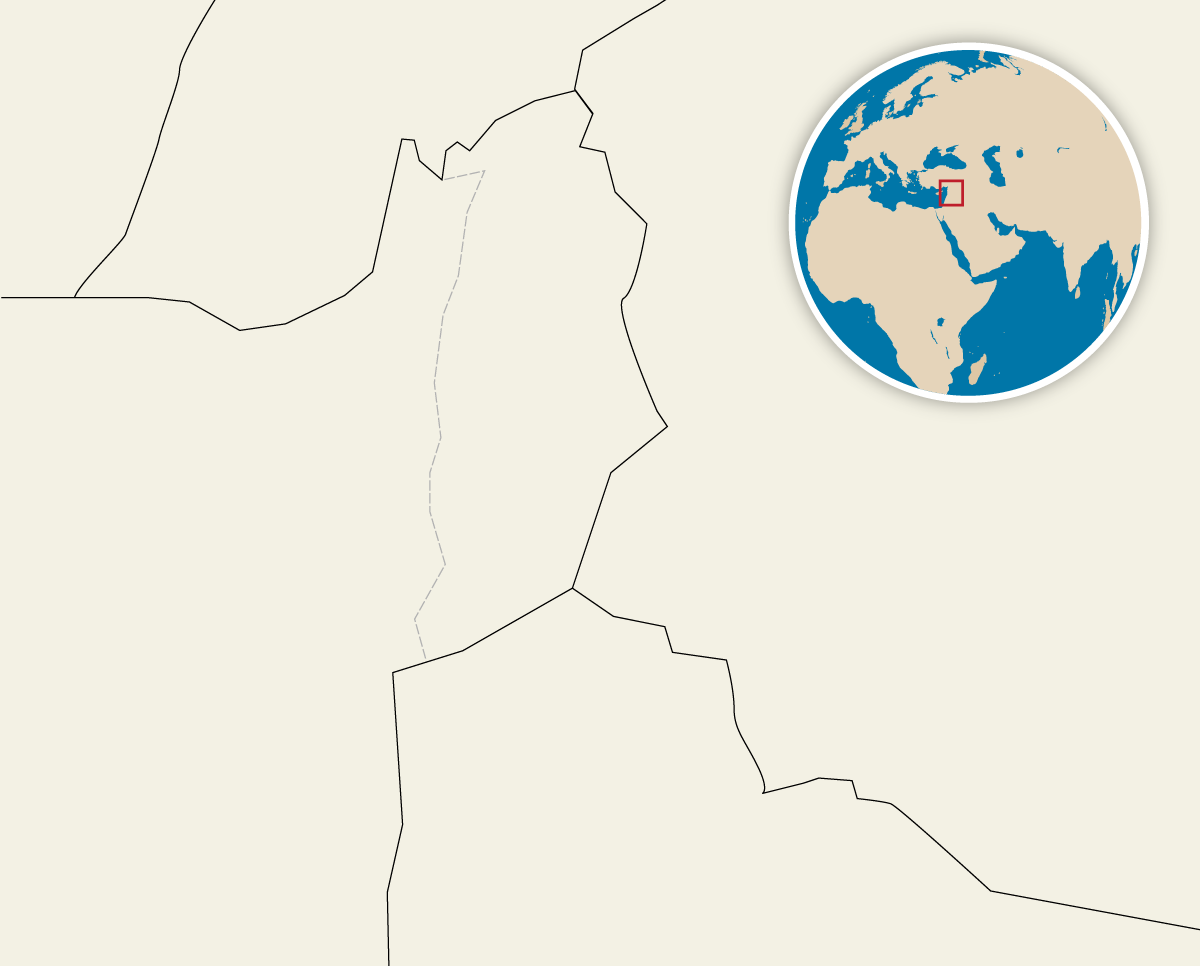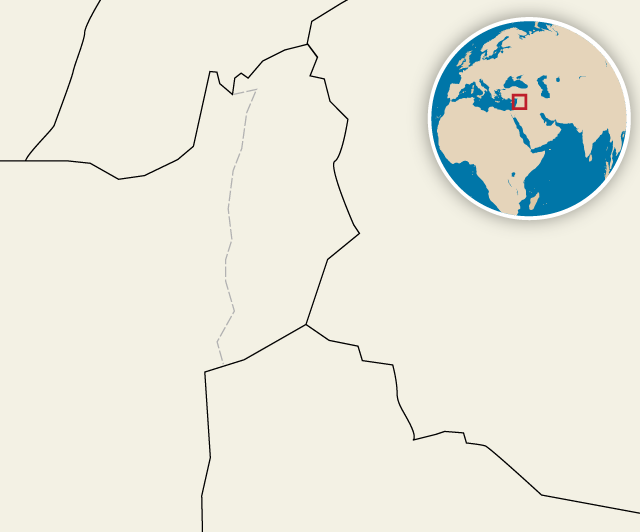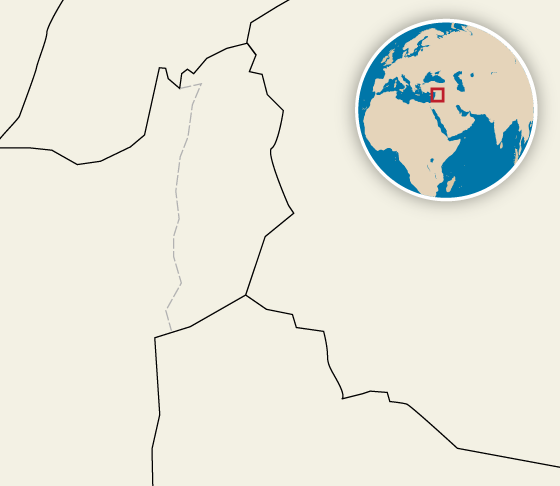Israel bombs the Syrian presidential palace and defense ministry
The offensive comes in response to the intervention of Syrian forces in the Suwayda region, but also has political objectives.


BeirutIsrael bombed Syrian military positions in Damascus on Wednesday. The attacks on the Syrian capital hit the presidential palace, the Defense Ministry, and the main entrance to the army headquarters, among other key targets, leaving three dead and 34 wounded, according to the Syrian state news agency. The new offensive comes after Israeli Defense Minister Israel Katz warned that operations would continue and intensify if Syrian forces did not withdraw from the Suwayda region, where clashes between Druze militias, Bedouin tribes, and regime troops have already caused more than 240 human casualties.
The Syrian Interior Ministry and a Druze community leader, Sheikh Yousef Jarbou, said Wednesday afternoon that they had agreed to a ceasefire to halt the fighting in the region. However, another Druze leader, Hikmat al-Hajari, stepped forward and asserted that the skirmishes would continue until Suwayda was "completely liberated." In fact, the ceasefire agreed to by the parties on Tuesday lasted only a few hours. Meanwhile, the United States—which had supported the Syrian government by lifting sanctions—has described the situation as "complicated." Secretary of State Marco Rubio stated that he is working on a diplomatic solution and that he expected progress "in the coming hours."
Since Sunday, July 13, Suwayda province has been immersed in a spiral of violence. The operation began with the kidnapping and torture of a young Druze man by members of a Bedouin militia. In response, Druze militias attacked Bedouin villages, and interim President Ahmed al-Sharaa ordered the deployment of troops and armored vehicles to regain control of the area. The operation ended in disaster, with dozens of soldiers killed or captured. Although the army recaptured several towns, fighting continues in the vicinity of the provincial capital.
Israel has taken advantage of this power vacuum to intervene, bombing Suwayda and Damascus. It has also reinforced its military positions along the border and blocked the passage of hundreds of Druze seeking to travel from the Golan Heights to Syria. In Majdal Shams, the largest town in the Golan Heights, Israeli troops used tear gas to disperse numerous people attempting to leave Israeli territory for southern Syria. Israel's Druze community, with a strong presence in the military and significant political clout, has pressured Netanyahu to act on behalf of their compatriots across the border.
A strategic ambition
This intervention is not solely for humanitarian purposes. Israel also seeks to weaken the new Syrian government and pressure it to accept normalization, even implicitly, of relations with the Jewish state. According to diplomatic sources, representatives of both countries met on Saturday in Baku during Al Sharaa's visit to Azerbaijan. Tel Aviv believes it is necessary to ensure that the new Syria adopts a neutral and predictable stance, similar to that of Jordan and Egypt.
Netanyahu maintains an ambivalent view regarding Sharaa. Although he has maintained the bureaucratic structure he inherited after the fall of Bashar al-Assad in December 2024The Israeli prime minister perceives President Al Sharaa as a weak figure who could be influenced by Islamist actors. Meanwhile, the Israeli government fuels internal tensions in Syria by presenting itself as the guarantor of the Druze community's rights.
In May, Tel Aviv stepped up its gestures of support for this minority, but deep divisions remain within the Syrian Druze community. Leaders like Sheikh Al-Hijri oppose any form of Israeli interference and accuse Damascus of allying with Bedouin militias to wrest control of territories that had escaped its authority for years.
Israel justifies its intervention by arguing that it is preventing hostile military groups from massing near the Golan Heights. The Israeli military has indicated that the Syrian troop buildup in the area represents a direct threat. Several analysts, such as Nicholas Heras of the New Lines Institute, maintain that the bombings have both a political and military objective and seek to force Damascus to accept agreements from a weakened position.
Al Sharaa under pressure
The violence in Suwayda erupts at a decisive moment for Syria. The transitional government is in the process of consolidating, but its response in the south has been interpreted as a collective reprisal against the Druze community. Israel has intensified its diplomatic strategy of seducing the Druze people, offering protection in exchange for distancing itself from the Damascus regime. The wounds of the past remain open. In 2018, Bedouin militias linked to the Islamic State perpetrated massacres against Druze in the area, and the fear of a repeat is rife.
The Al Sharaa government is trying to regain control, but its room for maneuver is rapidly shrinking. It must contain pressure from Arab allies committed to a peaceful transition and prevent the Druze from effectively aligning with Israel. While the bombing continues, Israel combines open threats with discreet offers of understanding, moving pieces not only on the military front but also on the political chessboard in the region.



